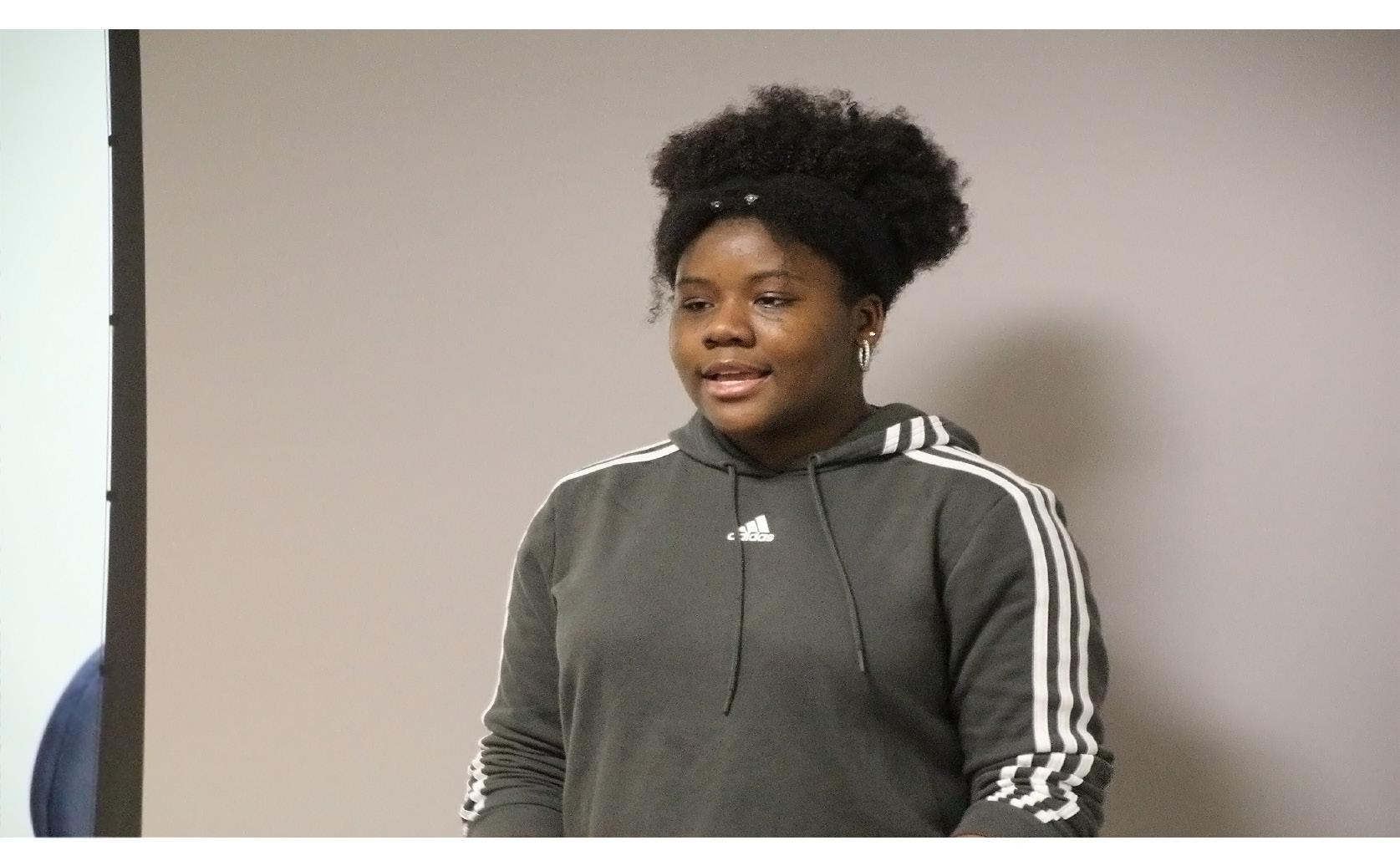
3 minute read
PHOBIA OF PUBLIC SPEAKING, EFFECT ON STUDENTS
HEAD 2 HEAD MUSIC OR NO MUSIC DURING YOUR WORKOUT?

Advertisement
“I listen to music because it keeps me focused and motivated. Listening to music distracts me from everything else going on or if I am getting tired. Listening to music while working out makes the whole thing more fun.” Aiden DeWitt, 10 AT THE PODIUM PHOBIA OF PUBLIC SPEAKING, EFFECT ON STUDENTS “The cross country and track runners aren’t allowed to listen to music while running. It’s a safety thing; we can’t have music because we have to be able to hear cars and other people around us. When I workout by myself I listen to music but not when at the school.” Josephine Povinelli, 11
Even for students who are not prone to any form of social anxiety or nervousness, when it’s time for the inevitable class presentation, whether it be a book report, speech or socratic seminar, presenting in front of a group has the potential to be terrifying. For students who react this way to public speaking, the process is typically a long road of fear and nervousness. Most fears of public speaking and class presentations result as a form of glossophobia, the fear of public speaking, which is believed to a ect nearly 75 percent of the U.S. population, according to Psycom.net, causing most students to feel a wave of stress rush over themselves when one of their teachers assigns a class presentation. One of the main stressors behind speaking in front of a class is the fear of embarrassment, along with an underlying vulnerability to judgement. Both phobias can elevate a student’s stress level, impacting the overall quality of their presentation or speech. The stress of public speaking can even have e ects on a person’s body, as high stress levels and nervousness increase production of adrenaline and norepinephrine, resulting in something of a fl ight-or-fi ght response for the person with these feelings. “When I have to present something in front of the class, I get really stressed out and it is not usually just during that one period, it is for the whole day,” sophomore Emma Langsford said. “Most students fear that they are going to mess up while speaking and are afraid that they will be judged by their peers for what they present about.” For some, the paranoia that accompanies public speaking has the ability to be reduced with di erent practices. Habits like practicing a presentation beforehand and avoiding distractions while speaking are positive steps toward beating the stress factor. “Controlling stress is everything when it comes to public speaking, and if you cannot, it can cause you to completely mess up a speech,” junior Speech and Debate team member Jacob Baker said. “I usually deal with this type of stress with doing things like controlling my breathing.” Although standing before a classroom full of peers can be mind-racing for students, teachers have their reasons for assigning class presentations. “I think it is really important to fi nd your voice,” Speech teacher Sandy Riley said. “Speech classes provide students with multiple skills such as public speaking which they will use throughout the rest of their lives.” The ability to conquer social pressure and a fear of public speaking can serve as a helpful tool for those who can achieve the skill. In total, the skill of properly presenting to a group allows for clearer communication, making the stress behind it worth the struggle. Story by Lucas Bisesi and Lainee Kirk. Information from Psycom.net. & NationalSocialAnxietyCenter. com.








